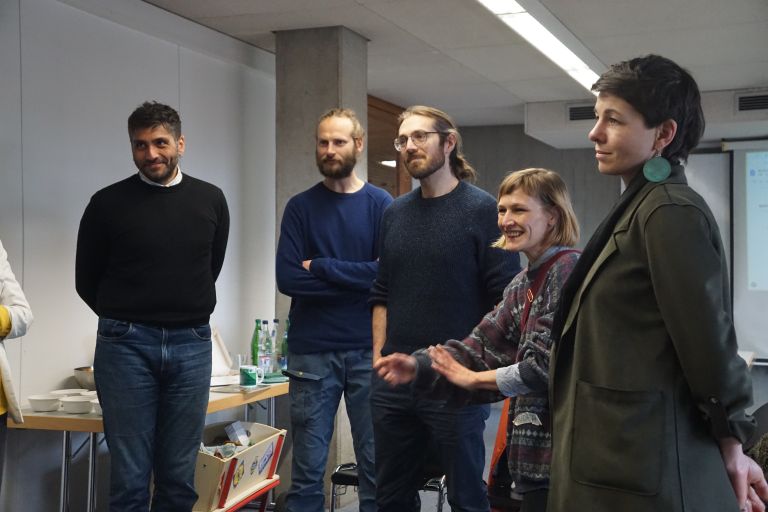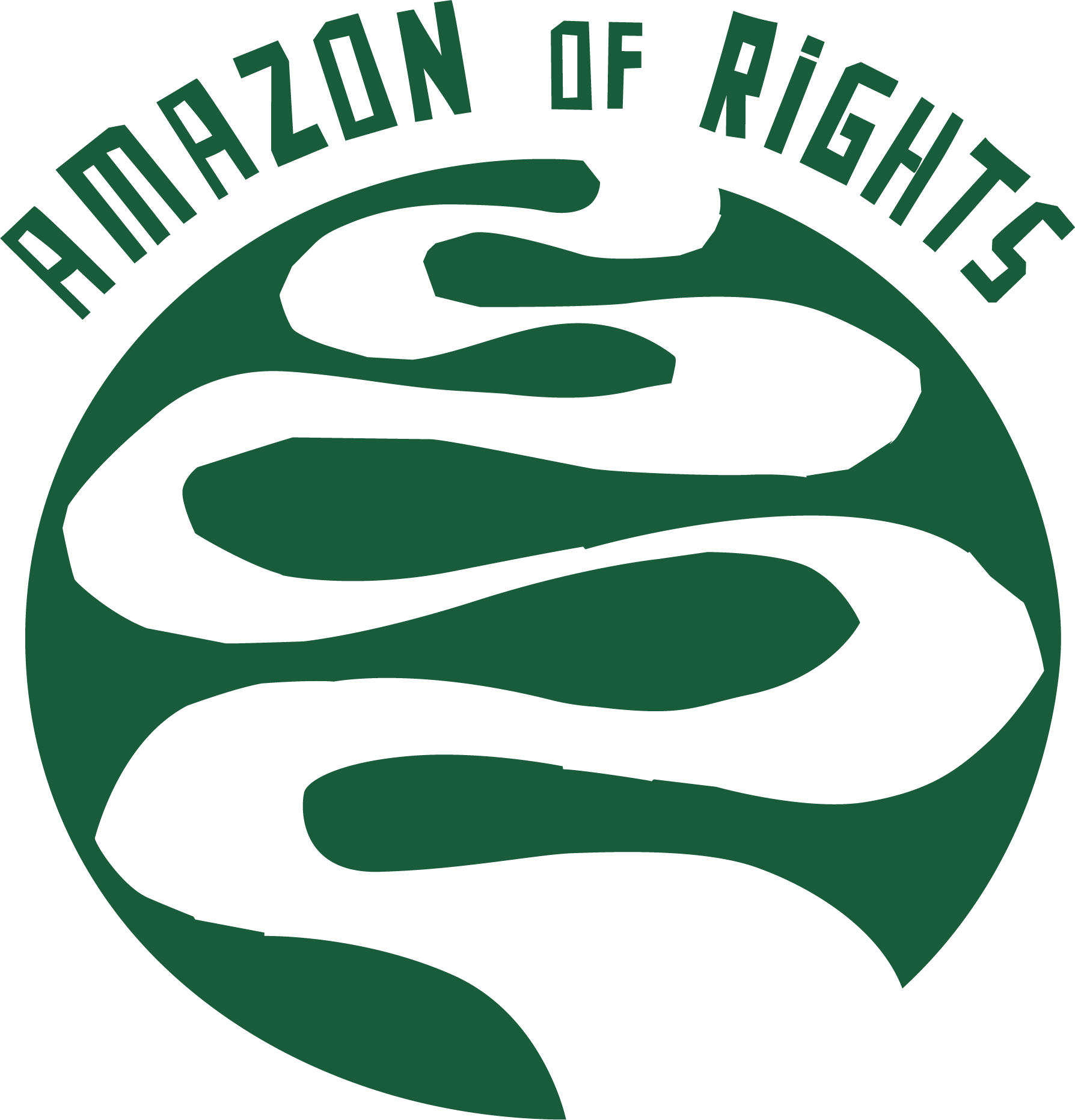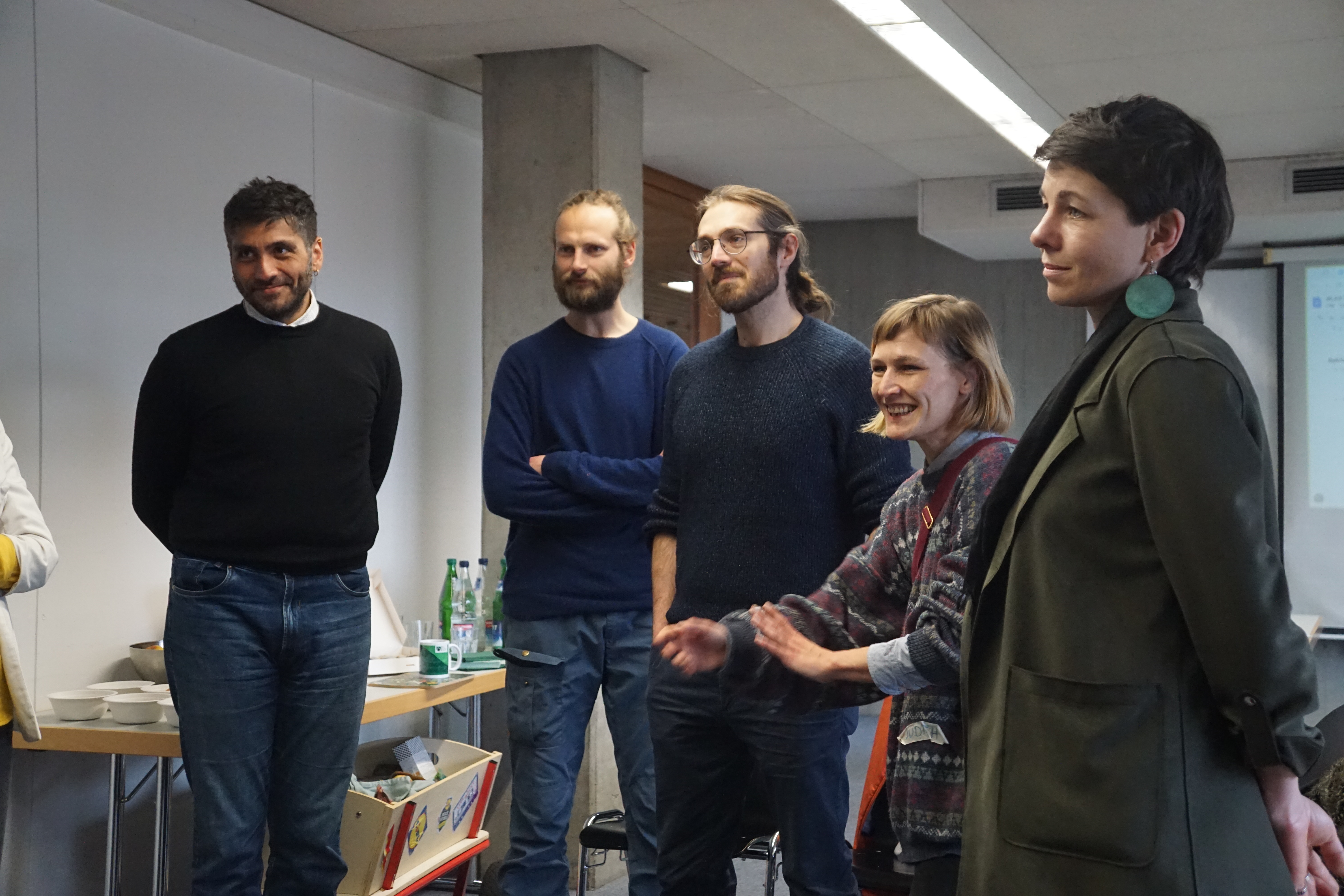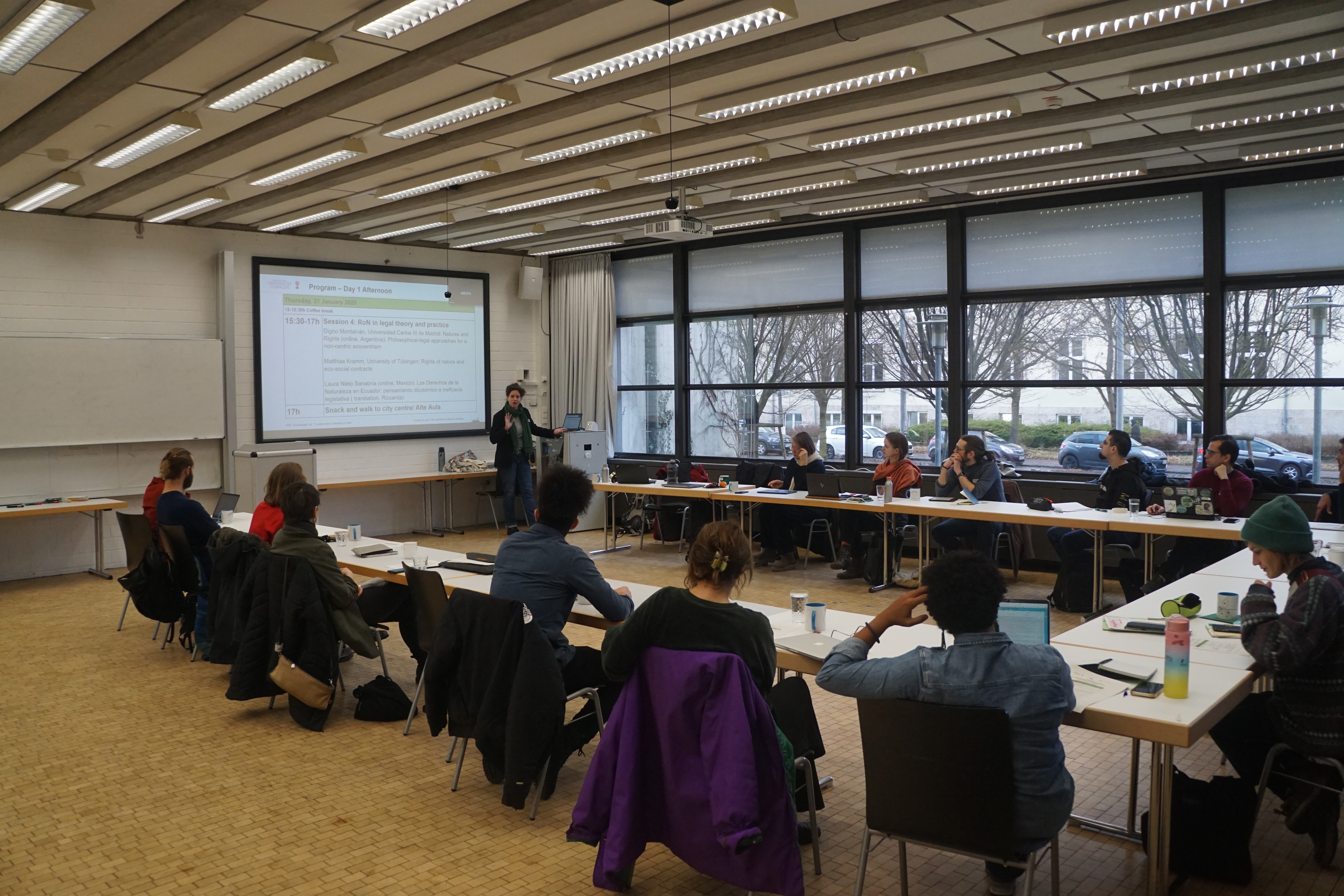
The Transformative Potential of Rights of Nature? Perspectives and Synergies in Academia, Arts, and Activism
23/01/2025 - EventOn 23 and 24 January 2025, artists, activists and researchers came together at the University of Tübingen for the Knowledge Lab "The Transformative Potential of Rights of Nature? Perspectives and Synergies in Arts, Activism, and Academia.” This experimental thinking event was hosted by Riccarda Flemmer (University of Tübingen), Annette Mehlhorn (MPI Halle) and Cecilia Oliveira (RIFS Potsdam). Rights of Nature (RoN), a legal innovation recognizing that nature has its own rights and legal standing, has sparked enthusiasm as well as skepticism regarding paths for transformation. While RoN are discussed for promising change in legal and political arenas, several ideas about what needs to change and how this change should occur are emerging in parallel in Latin America and Europe. Taking some interdisciplinary and arts-based projects as starting points, the workshop brought together people and collectives rooted in different workspaces to reflect based on concrete past, present, and future projects engaging RoN. The objective of the LAB was to reflect on ways to think and feel about human-nature relations and how to include these ways into one's own world of experience as places from which change may emerge.
The discussion addressed questions of the limits of language in understanding the human-nature relationship, the role of art in materially contributing to evidence-gathering for legalcases, the influence of the field of eco-forensics, the the role of judges personal relationship tonature, and urbanization as a complicating factor in establishing ecological knowledge. Igoremphasized the role of art as an intervention rather than ‘just’ storytelling, as well as the usefulness of film as a medium that plays with forms other than language. The debate extended to art’s evidentiary role, where it was framed by some as a potential catalyst for shifting perceptions and influencing legal proceedings, while others argued that art’s mediating influence on judges and public perspective is more limited, secondary to structural pressures.
The conversation went on to address broader epistemological questions, such as the role of the ‘unseen’ in shaping (ecological) awareness, RoN’s ontological implications, and the ways that legal and academic practices may evolve to accommodate plural knowledge systems. Overall, the discussion was characterized by an exploration of the ways that art, law, and science intersect and the complex ontological questions these intersections raise for RoN’s role in any future ecological and social transformations.


